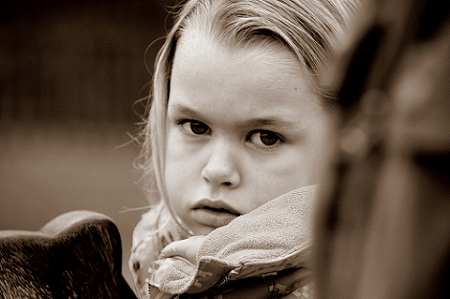Sugar and Spice and All Things Nice..?

Girls’ friendships at primary school are often intense, confusing and frustrating. Of course they can be a source of sheer joy, full of giggles and chatter, sharing secrets and fun. But this happiness and security can be devastated by break-ups, betrayals or gossip and your daughter will need guidance to help her navigate her way through these sometimes choppy waters.
There are few girls who have not at one time or another fallen out with a friend or been excluded from a group. Maybe they’ve been teased for not wearing the ‘right’ outfit, maybe they enjoy singing in the choir or doing extra maths and therefore not perceived as ‘cool’. Whatever your daughter has experienced, you can be sure that she’s not alone.
Often girls who are being bullied will not tell their parents because they do not want to disappoint them. Victims tend to be people-pleasers who will put up with things that other children would not. The bully senses this and a vicious circle begins. Once a girl has the ‘victim’ status it becomes hard to change. Bullying amongst girls can be hard to spot; it is rarely physical but more usually takes the form of name-calling, spreading rumours or exclusion.

photo by: Sarah-Jane King
What do you need to look out for? Has your daughter started making excuses about not wanting to go to school, complaining of frequent tummy aches or headaches? Does she seem unduly anxious or aggressive and is she having difficulty sleeping difficulties? Is she frequently ‘losing’ things such as pens, hair clips or socks? If your daughter admits to being bullied, or even if you’re just acting on a hunch, the best thing you can do is to get her to talk about it. It is vital to stay calm and not rant and rave about the perpetrator or threaten to make a fuss. This will often make things worse – it is better to build up your daughter’s self-esteem and teach her how to stand up for herself.
Teaching coping skills. Let your daughter know that she is not at fault and has a right to feel happy and safe at school. Praise her and highlight all the lovely things about her. Affirm her feelings with comments such as ‘that must feel awful’ and ‘you must be feeling sad’. Help her find ways to confront the bully such as maintaining eye contact with her while telling her how hurtful her behaviour is. Encourage her to avoid the bully; many girls are often drawn to the girl/group that is being mean to them as they are desperate to be liked. Little girls thrive on drama and if the victim seems disinterested in the bully or group that are excluding her, the drama fades and the situation often dies down.
What if the situation continues or worsens? You may feel your only recourse is to talk to another child’s parents. Be tactful, every parent will feel defensive about their own child. Adopt a ‘we’re all in this together’ tone and discuss the situation calmly. Teachers can offer mediation and help. Unfortunately teachers can themselves unwittingly contribute to difficult dynamics amongst a peer group, such as asking girls to get into pairs in an unevenly numbered group, or giving special attention to the pupils who are athletic or confident – don’t be afraid to point this out and ask for alternative strategies to be used.
What if your daughter is excluded by a girl she was previously close to? Don’t try and ‘fix’ the problem. Instead empathise that your daughter must feel left out, but remind her that all friendships have ups and downs, and this is a time, when this particular friendship is out of synch. Reassure her that it will get back on track in the future and encourage her to concentrate on other friendships for now. If you are the parent of a child who no longer wants to include an old friend, accept that you can’t force your daughter to spend time with someone she feels she has little in common with. However, it is vital that you tell her that although it’s ok to feel as if she has ‘grown out’ of that friend for now; she must still treat her with respect and be kind and friendly.
By spending time with your daughter, and talking things through, you will help her develop the empathy, critical thinking and social skills that will stand her in good stead in all her relationships. It’s tempting to jump in head first but being a strong support and guide in the background means your child can develop a self-sufficiency and moral code of conduct to see them through life.







